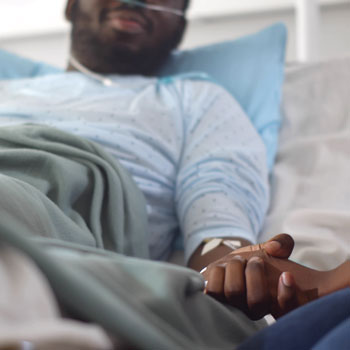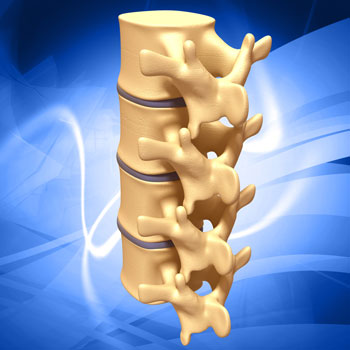Latest updates on ACP's priorities, initiatives
ACP Spotlight offers readers a look at ACP's current top priorities and initiatives, as well as highlights from our e-newsletter, ACP Internist Weekly.
Ethical guidance offered on family caregiving, support, visitation during public health emergencies

A new ACP position paper, “Ethical Guidance on Family Caregiving, Support, and Visitation in Hospitals and Residential Health Care Facilities, Including During Public Health Emergencies,” was published March 20 by the Journal of General Internal Medicine.
The paper was developed by ACP's Ethics, Professionalism and Human Rights Committee in response to the concern that many institutions continue to restrict or prohibit caregivers at the bedside. In the paper, ACP recommends the following:
- Ethical principles and scientific evidence should guide development of health care facility visitation policies. Policymakers and administrators must consult with relevant stakeholders, including physicians and other health care team members, as part of this process before implementing policy.
- Visitation policies and those who implement them must recognize the value of loved ones/family caregivers to patients and include them as sources of continuity of care and supporters of patient autonomy.
- During public health emergencies, visitation policies must evolve in keeping with continuous reassessment of risks and benefits as new evidence emerges.
- Physicians have a responsibility to advocate for patients and family caregivers. Visitation policies must respect and safeguard the dignity, rights, relationships, and values of all patients, with special regard for the vulnerable and marginalized. Policies should be clearly communicated to patients and families in understandable language and include readily accessible appeals procedures.
ACP joins new coalition for firearm injury prevention
In March, ACP joined the Healthcare Coalition for Firearm Injury Prevention as one of several leading medical and public health care organizations across the United States. The coalition will come together to push for a comprehensive public health approach to advance firearm injury prevention efforts through education, advocacy, and community-centered strategies.
Annals of Internal Medicine includes free content about the effects of firearm violence and what internal medicine physicians can do to help.
Register for spring or summer 2023 ACP Board Review Courses
Physicians preparing for ABIM certification examinations in internal medicine, including Maintenance of Certification, initial certification, and the longitudinal knowledge assessment, can enroll in upcoming ACP Board Review Courses.
The spring course will be held May 22 to 26 in Greater Chicago. The summer course will be held July 10 to 14 in the Washington, D.C., area. Virtual formats are available for both courses.
More information about each course, including registration rates, is online.
ACP's new High Value Care Curriculum updated for 2023
ACP's High Value Care Curriculum has been revamped with new interactive case studies and five ready-to-use slide decks to make it easier to facilitate group sessions.
The curriculum is designed to train residents to be good stewards of limited health care resources and make cost-conscious decisions. Topics include:
- eliminating health care waste and overordering of tests;
- understanding health care costs and payment models;
- providing high-value diagnostic testing and management, including antimicrobial stewardship;
- understanding high-value hospitalization and the cost implications of different care settings; and
- overcoming barriers to high-value care.
Each online activity is free and can be completed in an hour or less. More information is available online.
ICYMI: Highlights from ACP Internist Weekly
- CDC study shows uptick in C. auris infections in recent years. National surveillance data indicate that cases and transmission of Candida auris have continued to rise since the multidrug-resistant fungus was first reported in the U.S. in 2016. Reports of cases to the CDC rose by 44% in 2019 and 95% in 2021. The study was published by Annals of Internal Medicine on March 21 and summarized in the March 21 ACP Internist Weekly.
- Home-based HPV screening appears cost-effective. In an economic evaluation of 19,851 female participants from a randomized clinical trial, incremental cost-effectiveness ratios for increased uptake of human papillomavirus (HPV) screening ranged from $86 to $146 per additional screening completed. The study was published March 22 by JAMA Network Open and summarized in the March 28 ACP Internist Weekly.



